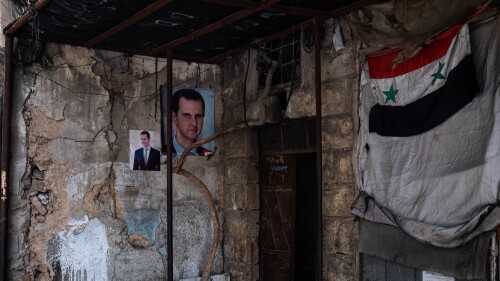Finally, an official body of the American government has come out and said what needs to be said: that the enemy is “Islamist terrorism…not just ‘terrorism' some generic evil.” The 9/11 commission in its final report even declares that Islamist terrorism is the “catastrophic threat” facing America.
As Thomas Donnelly points out in The New York Sun, the commission has called the enemy “by its true name, something that politically correct Americans have trouble facing.”
Why does it matter that the Islamist dimension of terrorism must be specified? Simple. Just as a physician must identify a disease to treat it, so a strategist must name an enemy to defeat it. The great failing in the American war effort since September 2001 has been the reluctance to name the enemy. So long as the anodyne, euphemistic, and inaccurate term “war on terror” remains the official nomenclature, that war will not be won.
Better is to call it a “war on Islamist terrorism.” Better yet would be “war on Islamism,” looking beyond terror to the totalitarian ideology that lies behind it.
Significantly, the same day that the 9/11 report was published, July 22, President Bush for the first time used the term “Islamic militants” in a speech, bringing him closer than ever before to pointing to the Islamist threat.
The report of the National Commission on Terrorist Attacks Upon the United States has other good value. It paints an accurate picture of Islamist views, describing these as a “hostility toward us and our values [that] is limitless.” Equally useful is the description of the Islamist goal being “to rid the world of religious and political pluralism.”
In contrast to those analysts who wishfully dismiss the Islamists as a few fanatics, the 9/11 commission acknowledges their true importance, noting that Osama bin Laden’s message “has attracted active support from thousands of disaffected young Muslims and resonates powerfully with a far larger number who do not actively support his methods."The Islamist outlook represents not a hijacking of Islam, as is often but wrongly claimed; rather it emerges from a “long tradition of extreme intolerance” within Islam, one going back centuries and in recent times associated with Wahhabism, the Muslim Brethren, and the Egyptian writer Sayyid Qutb.
The commission then does something almost unheard of in American government circles: It offers a goal for the war now under way, namely the isolation or destruction of Islamism.
And, after nearly three years, how fares the war? The commission carefully distinguishes between the enemy’s twofold nature: “al Qaeda, a stateless network of terrorists” and the “radical ideological movement in the Islamic world.” It correctly finds the first weakened, yet posing “a grave threat.” The second is the greater concern, however, for it is still gathering and “will menace Americans and American interests long after Usama Bin Ladin and his cohorts are killed or captured.” American strategy, therefore, must be to dismantle Al Qaeda’s network and prevail over “the ideology that gives rise to Islamist terrorism.” In other words, “the United States has to help defeat an ideology, not just a group of people.”
Doing so means nothing less than changing the way Muslims see themselves, something Washington can help with but cannot do on its own: “Tolerance, the rule of law, political and economic openness, the extension of greater opportunities to women — these cures must come from within Muslim societies themselves. The United States must support such developments.”
Of course, such an evolution “will be violently opposed by Islamist terrorist organizations” and this battle is the key one, for the clash under way is not one of civilizations but one “within a civilization,” that civilization being the Islamic one. By definition, Washington is a bystander to this battle. It “can promote moderation, but cannot ensure its ascendancy. Only Muslims can do this.”
Moderate Muslims who seek reform, freedom, democracy, and opportunity, the report goes on, must “reflect upon such basic issues as the concept of jihad, the position of women, and the place of non-Muslim minorities,” then they need to develop new Islamic interpretations of these.
The 9/11 commission has fulfilled its mandate in interpreting the current danger. The Bush administration should now take advantage of its insights and implement them with dispatch.







